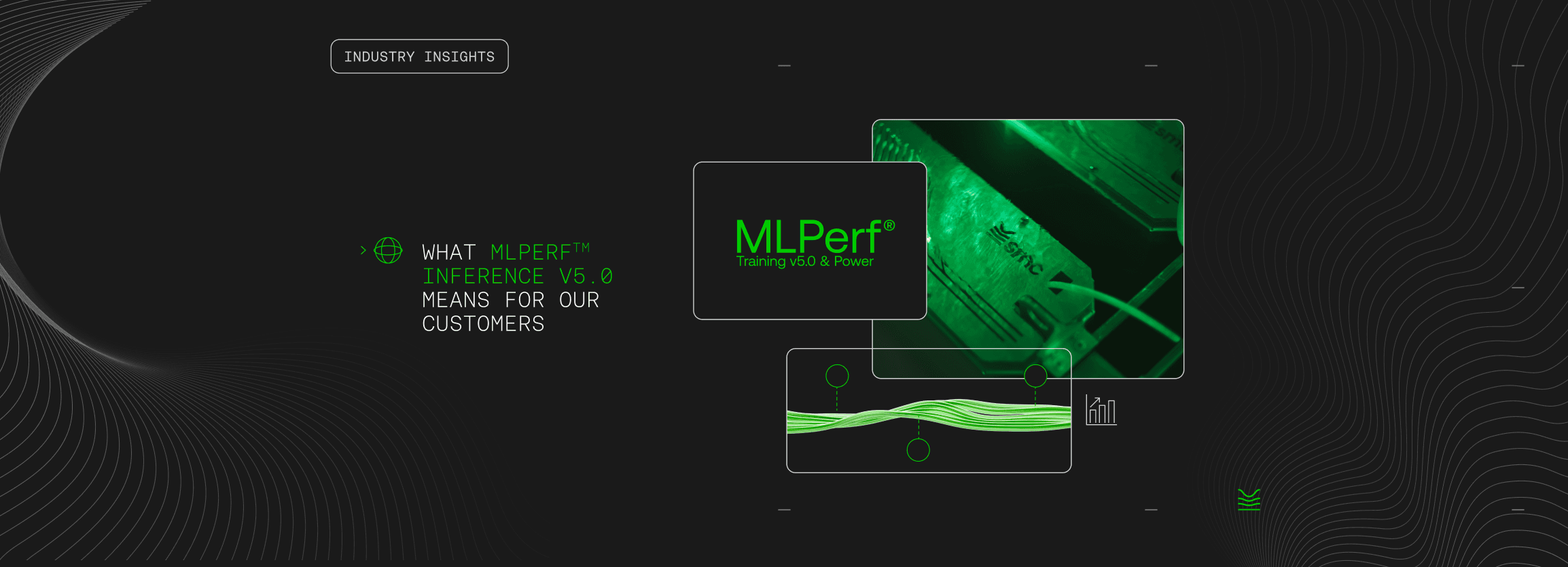13 August 2024
Firmus CTO Dr. Daniel Kearney: Challenging the energy industry status quo

We are excited to welcome Dr. Daniel Kearney as the new Chief Techology Officer (CTO) at Firmus Technologies Group (Firmus). With a distinguished career in cloud computing and thermal research, Daniel brings a unique blend of technical leadership for the Firmus HyperCube AI Factory platform and our AI Cloud service, Sustainable Metal Cloud (SMC).
The Firmus team had the opportunity to sit down with Daniel and delve into his background, his vision for the future of AI infrastructure, and why he joined Firmus.
Let’s start with your professional background and what caught your interest at Firmus.
Over the past six years, I’ve been deeply involved in cloud computing, including a significant tenure at Amazon Web Services (AWS) in Singapore. Prior to AWS, I worked as a Senior Research Scientist at ABB, where my research focused on enhancing cooling capabilities for next-generation high heat flux ABB power electronic devices – an expansion of my earlier PhD research on GPU chips. When I learned about Firmus and the pioneering work being done in AI infrastructure, particularly around immersion cooling, it immediately resonated with my dual Cloud and hardware background and my passion for sustainability. The challenge of reimagining AI infrastructure to support more compute and intelligence in the cloud is something I see as critical, and Firmus is uniquely positioned at the forefront of this innovation.
What aspects of joining Firmus excite you the most?
Firmus delivers hardware innovations in at such a rapid clip through its blend of practical engineering, visionary thinking and a healthy disregard for the status quo. The Firmus team are builders, with deep cross-functional expertise and a first principles approach to re-engineer the data centre from the ground up.
“ This level of disruption is what’s needed to push the boundaries in an industry that hasn’t seen significant change in decades. ”
The potential to reduce energy consumption by up to 50% through the advanced immersion cooling technology is truly groundbreaking and makes me excited about the future we’re building at Firmus. It is still early days for this promising technology but there is so much opportunity to reimagine an efficient energy future globally.
Immersion cooling is a major focus for Firmus—something you share an interest in, based on your PhD research. Could you elaborate on your research?
My core PhD research was to develop an energy-efficient liquid cooling solution for high-heat flux silicon chips (GPUs) that would enable efficient data centre operations towards zero carbon. That was back in 2005 when GPU applications were niche primarily for the hard-core Gaming community! Nonetheless, the Energy-Computation nexus has always been a challenge and today we are seeing accelerated compute being physically constrained by a data centre infrastructure that is no longer fit for purpose. Immersion cooling represents a significant leap forward in system-level thermal management for high-density computing environments. Liquid and electronics haven't had a natural relationship, but immersion comes with innovations in the chemistry of the dielectric liquids we're using, and it's also not as complex as people think.
“ Unlike traditional air cooling, which has limitations in efficiency, immersion cooling is about 1000 times more effective at heat removal. ”
As a human, consider the cooling sensation of having a cold bath compared to standing in front of a fan.
The innovations in the chemistry of the cooling fluids have also made them much more environmentally friendly, which aligns perfectly with a commitment to sustainability. This technology reduces the energy required for cooling, which in turn reduces the overall carbon footprint of AI infrastructure—a priority for Firmus as we look to lead in both performance and sustainability.
What are the opportunities and challenges you see in growing AI sustainably, especially within Firmus?
The Cloud industry is at a crucial juncture where the demand for AI compute power is skyrocketing, but this comes with a significant increase in thermal dissipation requirement and overall system energy demand. Firmus is tackling both of these challenges head-on by developing AI infrastructure that not only enables the compute performance but does so in a way that is energy-efficient, sustainable and scalable for future installations.
“ The real opportunities lie in the enterprise sector, where AI infrastructure needs to be both bespoke and energy-conscious. ”
The challenge is to rethink data centre design from the ground up—much like how the automotive industry had to rethink the design of internal combustion engine vehicles to transition to electric vehicles.
How do you see the role of immersion cooling evolving in the next five years?
We know the status quo in the data centre industry capabilities can’t meet the next-generation AI requirement. Firmus is driving the adoption of immersion cooling as a core part of the solution. This technology isn’t just the future — it’s the here and now, and it’s essential for the next phase of AI infrastructure.
The AI technology revolution doesn’t have to cost the Earth. Immersion cooling makes a lot of sense as it lowers the system-level energy requirement and ultimately results in lower carbon emissions for the industry as a whole. In addition, the advancements in cooling fluid chemistry have led to biodegradable fluids that are life-long and compatible with contemporary electronic substrates with no degradation of material integrity.
Firmus is unique in that we don’t just offer cooling technology; we provide an integrated, end-to-end solution that includes everything from silicon to system across thermal design, networking and power management. This holistic approach ensures that we can meet the needs of AI today and tomorrow.

